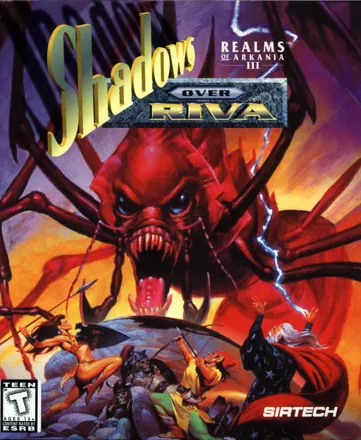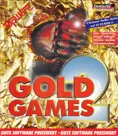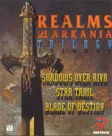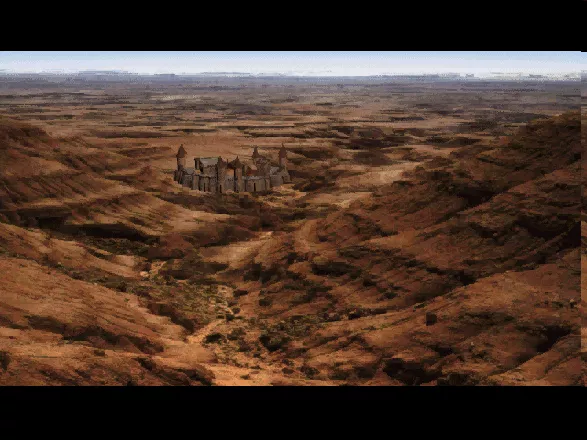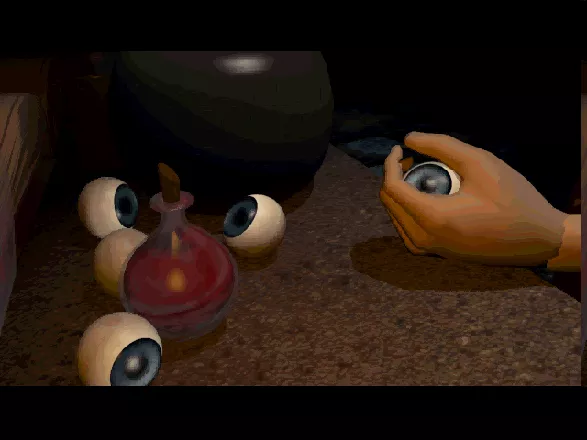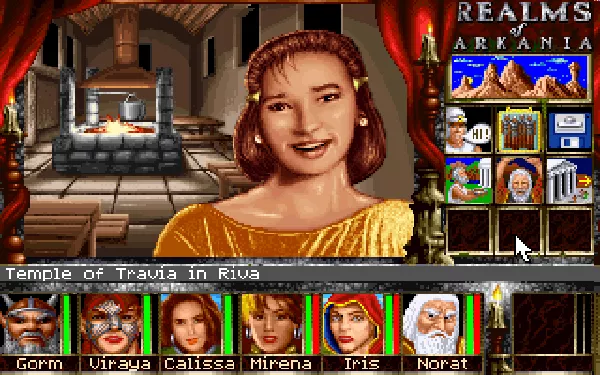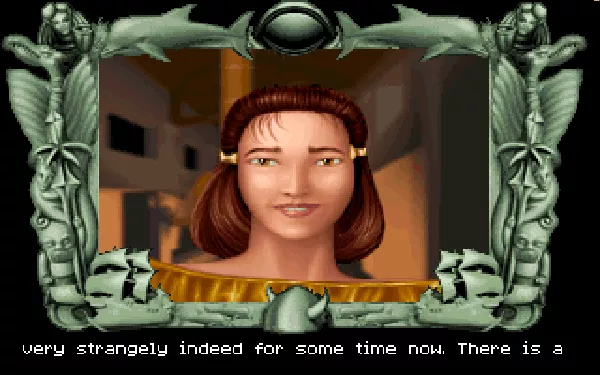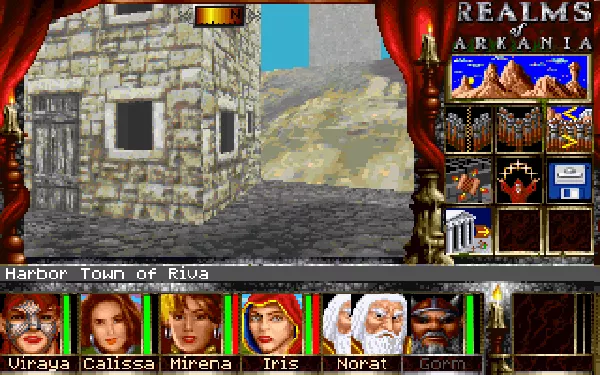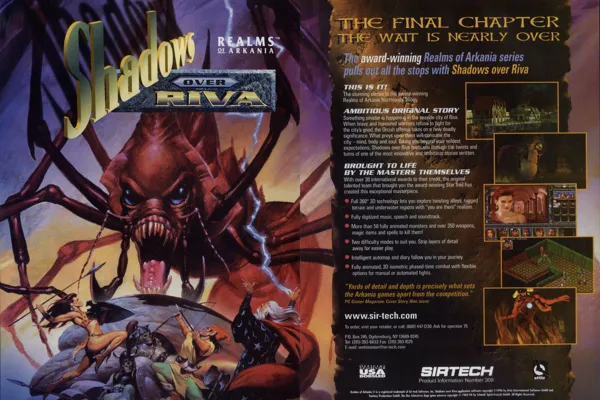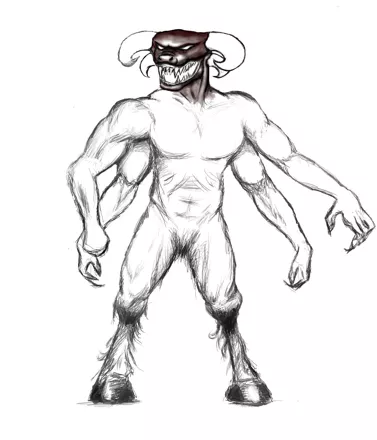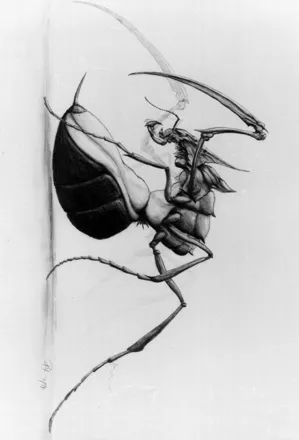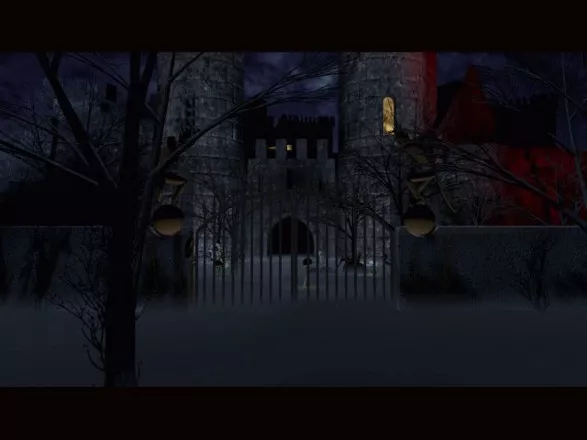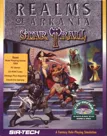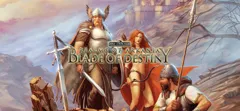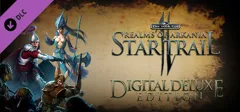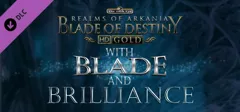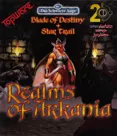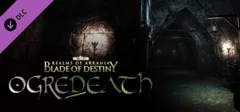Realms of Arkania III: Shadows over Riva
Description official descriptions
Orcs have overrun the countryside of the small coast town of Riva. A dwarven mine in the countryside has been occupied by a mysterious orc chieftain who seems to be of an unusually high intelligence. For an inexplicable reason, the city authorities refuse to acknowledge the danger. And rumors of a group of traitors in the city's slum districts surface. A party of adventurers arrives in the town and tries to investigate these troublesome occurrences.
Shadows over Riva is the third and final part in the Realms of Arkania trilogy, and the only one shipped exclusively on CD-ROM and featuring SVGA graphics as well as a smooth-scrolling 3D world. All other aspects of the game are very similar to its predecessors: the player generates a party of characters of various classes, roams the game world from a first-person view, and engages in turn-based combat displayed on separate isometric screens. Changes mostly include fine-tuning such as a more streamlined inventory management and integration of area graphics into battle screens.
Unlike its predecessors, the game is set entirely in the town of Riva and its immediate surroundings. The prominent traveling-related gameplay features of the series are therefore reduced in this installment. However, the town itself is noticeably larger than any settlement in the previous games and acts as a hub location connecting various areas. Full-screen hand-drawn cutscenes serve to advance the plot.
Spellings
- 巫術闇影 - Traditional Chinese spelling
Groups +
- Fantasy creatures: Dwarves
- Fantasy creatures: Elves
- Fantasy creatures: Orcs
- Gameplay feature: Alchemy
- Gameplay feature: Auto-mapping
- Gameplay feature: Importable characters
- Gameplay feature: Journal
- Middleware: Smacker Video
- Protagonist: Female (option)
- Realms of Arkania series
- The Dark Eye / Das Schwarze Auge universe
Screenshots
Promos
Videos
Add Trailer or Gameplay Video +1 point
See any errors or missing info for this game?
You can submit a correction, contribute trivia, add to a game group, add a related site or alternate title.
Credits (DOS version)
47 People (46 developers, 1 thanks) · View all
| Producer | |
| Executive Producer | |
| Producers | |
| Programming | |
| Additional Programming | |
| 3D / Graphics Programming | |
| Graphics / Artwork | |
| Additional Graphics / Artwork | |
| [ full credits ] | |
Reviews
Critics
Average score: 75% (based on 16 ratings)
Players
Average score: 4.0 out of 5 (based on 35 ratings with 1 reviews)
One of the best RPGs ever made - a spiritual successor to Betrayal at Krondor
The Good
Some games get fame and are instant hits. Some get belated recognition. But this little masterpiece got neither: For a game that was the best RPG since BaK it still remains curiously forgotten. Perhaps it's because it was based on a German pen&paper RPG (with fairly incomprehensive rules), or perhaps it's graphics were primitive compared to those of Diablo or maybe because it was surpassed by the Infinity engine and Fallout games that soon followed. Regardless, it's time to take a closer look at a game that should rightfully figure on any "Classic RPGs" list.
You start the game with a group of six adventurers from the previous game, which you can replace with your own imports from that game or with new rerolled heroes. While the game is supposed to continue a previous one, the connection isn't strong - in fact you could say it's almost nonexistent. Shadows over Riva has only a handful of references to the previous games and with the exception of the tactical battles it has nothing in common with them. You are in no way punished by not playing the previous game, rather you are rewarded - if you were to import characters from Star Trail you would have ended up with a super strong party and no challenge.
The game world is limited (mostly) to the city of Riva and its immediate surroundings (no more wandering about the entire continent like you did in Star Trail!) You were called to Riva because your group of adventurers has proved themselves to be capable heroes and should be able to deal with the small problems that plague the city. What problems? Nothing serious. Some people acting odd, others disappearing, a possible orc invasion - things that unsettle the local priestess, but should pose no problem to experienced warriors and magicians such as yourselves. Except they do. The deeper you delve into the situation, the more complex it becomes. Tensions boil between the mostly human population and the holberker (elf-orc halfbreed) minority, between the political establishment and the local thieves guild and you are caught in the middle of the storm. Problems which seemed disconnected are revealed to be pieces of a single puzzle with a rewarding reveal.
The city itself is very well made. It has many temples dedicated to the many gods of the realm, with each god being able to give you a different blessing. Inns and taverns offer a place to hear rumors, make a few coins, hire some extra adventurers (in addition to your main six members you have an extra seventh spot for temporary companion), there are shops, healers and many special locations. While many houses have only generic NPCs (even though every single NPC has a distinct portrait), many places provide unique, plot relevant dialogue. All city locations have a distinct feel to them. There is a sharp difference between the good parts of town and the hovels where the holberker live. The graveyard and the catacombs (of course there are catacombs, don't be silly) under it are spooky. The city has not one, but two sewer mazes, thus making it officially twice as better as any other standard RPG city! The outdoors areas, from the orc-infested mines, to the small forest and cliffs, and to the marshes and the tower that stands within, all provide great contrast to the walled city of Riva. Those outdoor areas are also the main sources for optional side quests (almost everything inside of Riva is connected to your main plot in some way), puzzles (even a three-part treasure hunt), unique encounters and the only place for your druid to practice his herb-hunting skills. The game also features a day-night cycle and calendar which affect your game. Certain special encounter can only appear at a certain time and place, and certain days have unusual effects. They aren't necessary to the game and can be easily ignored, but they provide rewards for those who are willing to look for them.
The game is presented in a first person faux-3d view, that looks similar to that of M&M6 with continuous movement (unlike the previous Realms of Arkania games where the characters turned in 90 degrees and teleported one meter ahead). The game is linear, but it provides an illusion of an open world. While you do need to accomplish certain things in certain order to progress the plot, you can also take your time to explore as much as you can of the game-world as possible at almost any time. Except for the last two chapters you aren't thrown into a corridor and battle all the baddies until you reach the end. You can even explore locations that would become important to the plot only at a later time. Sure, you won't do much there, but you'll get to explore more of the game and interact with people that later could be dead or turned against you.
The tactical turn-based battles, however, are exactly the same (with the exception of some better rendered bosses) as in previous games. Those battle permit many actions: Object manipulations (useful when you want to swap a broken sword or drink a potion), a huge variety of spells and the basic fighting-oriented ones.
Overall the game manages to retain its own story and environment, but still being close enough to other, more familiar, RPGs.
The Bad
Just like much of what makes this installment great are things that were changed from previous game, the things that didn't change are this game's greatest drawbacks.
For one thing, this game, like many other tabletop-game inspired VGs, is far too in love with the paper rule set. Creating a new character (if you want some of your own, instead of the ones you were given) is a harrowing procedure: You have to rolls dozens of attributes and assign scores of skills. The manual provides explanation, but not enough if you want to create a decent party instead of just a functioning one. What's worse is not only that the rules are overcomplicated and incomprehensible (even by D&D standards), but they are also completely pointless! Since the game takes place in a city all of the rules that apply to traveling and wilderness survival activities are never used at all! I think there is only one time when your climbing skill is checked and riding, like so many other skills, is never checked at all. Hell, even the feature to split your party which prominently features in the basic action icons isn't needed (if i remember correctly only one, tiny, easily missed side-quest requires it). Obviously those skills were kept to allow continuity with previous games, but why bother? The plot isn't connected to them, you almost never leave the city, and the game could have been placed on a different planet for all the good it does.
Convoluted rules make combat a living hell. Spells are useful in specific situations or against specific enemies. If you didn't make an extremely balanced party you'll soon discover that any battle is a straggle. Worst yet, you can't afford to switch to melee only, because melee in Realms of Arkania is very luck dependent (yes, your skills make a difference, now go reread the manual to make sure you placed them exactly right) where it's a wild guess whether you'll hit your enemy, get parried, fumble and cut yourself, or just drop everything and flee (yes, really). If that wasn't enough, leveling up isn't really an option in this game. There is a finite number of side-quests and battles, so there is a very hard limit on how much you can grind (expect to go from level 6 to level 10 by the end of the game). This means that the final chapter in the game (spoiler warning: don't get too attached to your items) depends almost entirely on how well your magicians perform, and that, as was mentioned earlier, a tricky issue.
Items are also a problem. You'd think that an RPG would shower you with items from mundane to magical, with only the price of the item, your skill in handling it or the difficulty of obtaining it as the limiting factor. But in Riva there is a huge shortage of useful stuff. Very quickly (generally, by the time you start exploring the orc mine) you'll able to afford anything the city has to offer, which isn't very much. There are a handful of enchanted items to be found here and there, but their boni are marginal at best.
The plot is the last thing that needs to be addressed. I said the plot is good, and it is, but there are actually two parts to this game: Most of the game is dedicated to solving a mystery, but the last two acts are slapped on for no good reason. Sure, there is a contrived reason, but it isn't a good one.
Most of the game you try to learn about the city, the main actors there and the underlining mystery. All that is nice and good. Unfortunately, once you do uncover the plot there is nothing left for you to do but to solve it. And by all logic it should be as simple as that - you just walk in, do what you must, and walk out. No climatic battles or daring escapes. Because that's the nature of the threat - it's a plot, not the arrival of Galacticus!
Obviously the designers couldn't leave it at that. So instead of rethinking some aspects of the threat, or adding more to the game in the early stages, they decided to through the heroes into the most bizarre situations, including a boat trip and a shrink ray.
The only good thing to come out of it is that you get to see some very different locations. However, at that point the game becomes a long dungeon crawl with story elements merely being stated to you. And it's not like you had much affect on the dialogues to begin with! When telling it's story the game rarely asks you for a contribution. Which could be fine when you have an illusion of freedom to go about your business or explore a different location, but when that freedom is taken from you a linear story turns into the railroad of the damned with you as the sole passenger.
The Bottom Line
All said, this game is still a timeless classic. For the most part its story isn't like the regular "slay the big meanie" that you get in most RPGs. The way you follow the clues and get sucked deeper and deeper into the conspiracy makes the game more akin to a detective story.
Unless you're a DSA veteran, you'll likely find the combat challenging, particularly in the final parts. Apart from the combat, several puzzles here and there spice up the game nicely.
All the problems in the last part of the game are countered by the increased challenge of the fights and bizarreness of the new locations. Even though I found the game rules to be unsuited to the medium, I still think the game itself (that is to say, the parts of the rules which are actually relevant to what you're doing) is easy to learn. Why, when I finished it for the first time years ago I did it without even reading the manual and not knowing what DSA was.
This game definitely deserves a try.
DOS · by Alex Z (1856) · 2014
Trivia
Publisher Topware used Schatten über Riva to conduct an experiment: the game entered the stores as a jewel case version, without a box and a regular manual. However, it only cost 50 Marks (rougly $25) -- about half the price of normal games. Topware wanted to see if a (fairly popular) game would sell more units if it was priced considerably lower than other products. The result was mediocre, and Topware soon released a box version follow-up.
Analytics
Related Sites +
-
A video of Armalion
This is promotional video of the never released game Armalion. -
DSA - Die Nordlandtrilogie (mostly German)
The biggest German fan-page of the Realms of Arkania Trilogy. Contains just about everything you need to about the trilogy. Maps, items, bug lists, patches, tips and tips & tricks, etc... It probably is the most complete database about the trilogy on the web. Unfortunately the the site is in German, but there is some effort at the moment to translate the major parts into English. Already done are the maps.
Identifiers +
Contribute
Are you familiar with this game? Help document and preserve this entry in video game history! If your contribution is approved, you will earn points and be credited as a contributor.
Contributors to this Entry
Game added by Alexander Schaefer.
Windows added by Picard. Macintosh added by Cavalary.
Additional contributors: -Chris, Rebound Boy, Kohler 86, formercontrib, Paulus18950, SGruber, ZeTomes, ヒグマル, Đarks!đy ✔.
Game added March 26, 2001. Last modified August 2, 2024.


